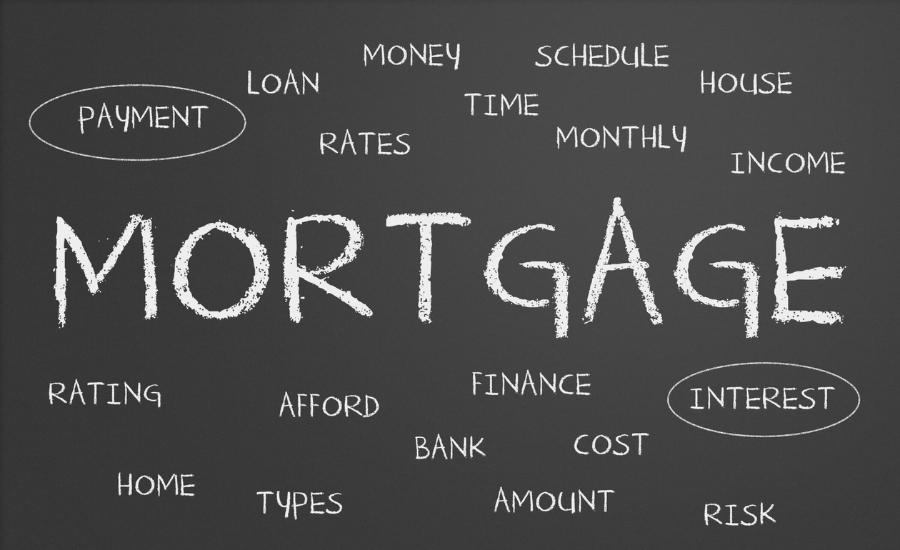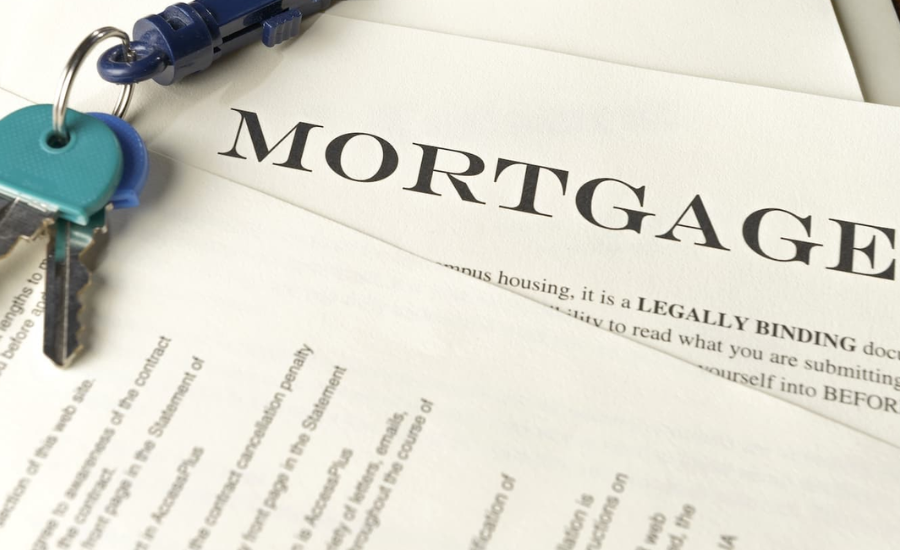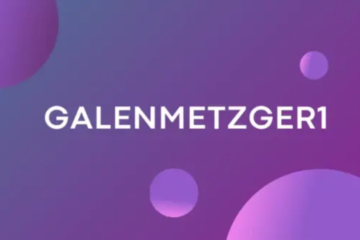When embarking on the path to owning a home, a solid grasp of mortgages—referred to as “hipotecas” in Spanish—is essential. Mortgages are intricate financial instruments with the potential to greatly influence your financial trajectory. This guide provides an in-depth exploration of mortgages, extending beyond the basic information available from other sources. Our aim is to deliver a thorough understanding that benefits both first-time homebuyers and those considering refinancing their current loans. For a detailed explanation of what a mortgage is, you can visit https://fotise.com/que-es-una-hipoteca/.
Navigating the world of mortgages can be overwhelming, but with the right knowledge, you can make informed decisions that align with your financial goals. This article serves as a comprehensive resource, breaking down the complexities of mortgages into clear, actionable insights. By understanding the nuances of these financial products, you’ll be better prepared to manage your mortgage effectively and make choices that best suit your needs. If you seek further information on mortgages, check out https://fotise.com/que-es-una-hipoteca/ for additional guidance.
Understanding Mortgages

A mortgage is a specialised loan intended for purchasing real estate, where the property serves as collateral. This means that if the borrower defaults on their payments, the lender has the right to claim ownership of the property through foreclosure proceedings. Mortgages are pivotal in the real estate market as they enable individuals to acquire homes by spreading the cost over an extended period, often years or decades. This structure helps buyers manage their financial responsibilities and achieve homeownership without needing the full purchase amount upfront.
Grasping the concept of mortgages is crucial for anyone considering buying a home, given the significant financial implications involved. Mortgages involve various terms, conditions, and interest rates, all of which can affect the overall cost of the loan and the affordability of homeownership. As such, understanding the fundamentals of how mortgages work can help potential buyers make well-informed decisions and select the best mortgage option that aligns with their financial situation.
For a deeper understanding of what a mortgage entails and its various aspects, refer to the detailed resource available at https://fotise.com/que-es-una-hipoteca/. This guide offers valuable insights and clarity, laying a solid foundation for anyone looking to navigate the complexities of mortgage financing and home acquisition.
The Essential Role of Mortgages in Homeownership
Mortgages are crucial for enabling homeownership, providing a means for individuals to buy homes without having to pay the full purchase price immediately. Instead, these loans allow buyers to spread the cost over an extended period, typically between 15 and 30 years. This structure makes homeownership attainable for a larger segment of the population, as it reduces the financial burden of an upfront payment that would otherwise be required. By breaking down the total cost into manageable monthly payments, mortgages make it feasible for many people to invest in property.
Despite their advantages, mortgages are complex financial instruments that necessitate a thorough understanding before committing. The long-term nature of these loans means that borrowers must carefully consider various factors, including interest rates, repayment terms, and their own financial stability. It’s essential for prospective homeowners to educate themselves about the nuances of mortgages to make informed decisions that align with their financial goals.
Understanding mortgages is more than just knowing how to apply for one; it involves a deep dive into the terms and conditions that will affect your financial future. The complexity of these loans underscores the importance of seeking reliable information and expert advice. By exploring resources like https://fotise.com/que-es-una-hipoteca/, individuals can gain valuable insights and ensure they are making well-informed choices about their mortgage and home financing options.
Understanding Key Mortgage Components
Principal: The principal refers to the initial sum of money that a borrower takes out as a loan. This amount is the basis of the mortgage and does not include any interest or additional fees. Over the life of the loan, borrowers will repay the principal amount in addition to interest, with each payment reducing the outstanding balance of the loan.
Interest Rate: The interest rate is the cost associated with borrowing money, expressed as a percentage of the principal. This rate determines the amount of interest that will accrue on the borrowed funds over the duration of the loan. Interest rates for mortgages can fluctuate depending on several factors, including the borrower’s credit profile, prevailing market conditions, and the specific type of mortgage being applied for.
Amortisation: Amortisation is the method used to gradually pay off a mortgage through scheduled, regular payments. These payments are typically divided into principal and interest components. At the start of a mortgage, a significant portion of each payment is allocated to interest. As time progresses, however, an increasing share of the payment is directed toward reducing the principal balance, eventually leading to the full repayment of the loan.
Escrow: An escrow account is a financial arrangement used to manage and disburse funds for property-related expenses, such as taxes and insurance. The borrower contributes to this account regularly as part of their mortgage payment. The funds are subsequently used by the lender or escrow agent to cover the property taxes and insurance premiums for the borrower, ensuring that these essential payments are made punctually.
For a more detailed explanation of these mortgage terms and their implications, you can visit https://fotise.com/que-es-una-hipoteca/. This resource provides comprehensive insights into mortgage terminology and processes, helping you better understand how each component affects your home financing.
Mortgage Types Explained

Fixed-Rate Mortgages
A fixed-rate mortgage provides a consistent interest rate throughout the duration of the loan, ensuring stable monthly payments. This type of mortgage is ideal for borrowers who plan to remain in their homes for an extended period and prefer the predictability of fixed payments. The stability of fixed-rate mortgages helps homeowners manage their budget effectively without worrying about interest rate fluctuations. For more detailed information on whether a fixed-rate mortgage suits your needs, check out https://fotise.com/que-es-una-hipoteca/.
Adjustable-Rate Mortgages
Adjustable-rate mortgages (ARMs) come with interest rates that change at regular intervals, influenced by current market trends. Initially, ARMs often offer lower interest rates compared to fixed-rate mortgages, making them appealing to borrowers who plan to relocate or refinance before the rates adjust. However, the potential for rate increases can affect future payments. To understand how ARMs function and whether they are right for you, explore https://fotise.com/que-es-una-hipoteca/.
Interest-Only Mortgages
With interest-only mortgages, borrowers pay solely the interest for a set period, typically ranging from 5 to 10 years. While this approach results in lower initial monthly payments, it can lead to a significant increase in payments once the borrower begins repaying the principal. This type of mortgage may be suitable for those seeking lower payments in the short term but requires careful consideration of future payment implications. Learn more about the benefits and drawbacks of interest-only mortgages at https://fotise.com/que-es-una-hipoteca.
Reverse Mortgages
Designed for homeowners aged 62 and older, reverse mortgages allow individuals to convert a portion of their home equity into cash without making monthly payments. The loan is settled when the borrower either relocates, sells the property, or upon their passing. This type of mortgage can provide financial relief in retirement but comes with specific considerations and conditions. For an in-depth look at reverse mortgages and how they work, visit https://fotise.com/que-es-una-hipoteca/.
Key Factors Affecting Mortgage Rates

Mortgage rates are shaped by a multitude of elements that interact in complex ways. Key influences include broader economic conditions, such as the state of the economy and inflation rates, as well as monetary policy decisions made by the Federal Reserve. These external factors contribute to the general level of interest rates across the market. Additionally, lenders’ operational expenses also play a role in determining the rates they offer. Beyond these general factors, individual circumstances such as a borrower’s credit score, the size of the loan, and the amount of the down payment can also significantly impact the interest rate.
Understanding these variables is crucial for borrowers seeking the best mortgage terms. For those looking for more in-depth information on how these factors come into play, further details can be found at https://fotise.com/que-es-una-hipoteca/. This resource provides valuable insights into how different elements influence mortgage rates, helping you make more informed decisions about your home financing options.
Navigating the Mortgage Application Process
Mortgage Qualification Requirements
To be eligible for a mortgage, borrowers must fulfil certain criteria established by lenders. These typically include maintaining a minimum credit score, demonstrating a stable income, and having a manageable debt-to-income ratio. Lenders use these benchmarks to evaluate whether a borrower can handle the financial responsibilities associated with the loan. Meeting these requirements is essential for securing a mortgage and ensuring that the borrower has the capacity to repay the loan without undue strain. For a comprehensive overview of eligibility criteria, visit https://fotise.com/que-es-una-hipoteca/.
Necessary Documentation for Mortgage Applications
The process of applying for a mortgage involves submitting a variety of documents to verify your financial situation and the details of the property you wish to purchase. Key documents include proof of income, such as recent pay stubs and tax returns, bank statements, employment verification, and property-related information. Accurate and complete documentation is crucial to facilitate a smooth application process and avoid delays. For a detailed checklist of required documents, refer to https://fotise.com/que-es-una-hipoteca/.
Understanding Mortgage Underwriting
When it comes to approving mortgage applications, lenders rely on a process known as underwriting. This essential process includes a detailed review of the borrower’s financial situation, encompassing their credit history and the appraisal value of the property they intend to buy. The underwriting process helps lenders determine whether the applicant meets the necessary criteria for loan approval and what terms should be offered. For a detailed understanding of how underwriting works, more information is available at https://fotise.com/que-es-una-hipoteca/.
Credit scores are pivotal in the mortgage approval process and can significantly influence the terms of the loan, including the interest rate. A high credit score reflects a history of responsible financial management, which makes the borrower more appealing to lenders. On the other hand, a lower credit score can result in higher interest rates or difficulties in obtaining a mortgage. For tips on improving your credit score and enhancing your chances of mortgage approval, check out https://fotise.com/que-es-una-hipoteca/.
Additionally, lenders will assess various other factors during the application process, such as the borrower’s income stability and overall debt levels. These elements are evaluated to ensure that the borrower can handle the financial obligations of the mortgage. The comprehensive review during underwriting is designed to protect both the lender and the borrower by confirming that the loan terms are appropriate given the borrower’s financial profile.
Understanding Mortgage Expenses: Down Payments and Closing Costs

A down payment represents the initial cash amount that a borrower contributes towards the purchase of a property, typically calculated as a percentage of the home’s total price. While traditional mortgages often necessitate a down payment of around 20%, there are several options available that accommodate lower down payments, particularly beneficial for first-time homebuyers. These alternative options can make homeownership more accessible, allowing buyers to secure a mortgage with a smaller upfront investment. For more information on various down payment requirements and alternatives, visit https://fotise.com/que-es-una-hipoteca/.
In addition to the down payment, buyers must also consider closing costs, which encompass various fees necessary to complete the mortgage process. These fees include costs for appraisal services, title insurance, and legal documentation, and generally amount to between 2% and 5% of the purchase price of the home. Understanding these costs is crucial as they are payable at the closing and can significantly affect the total amount needed to finalise the purchase. For a comprehensive breakdown of closing costs and what they entail, refer to https://fotise.com/que-es-una-hipoteca/.
Private mortgage insurance (PMI) is another factor to consider for those making a down payment of less than 20% of the property’s purchase price. PMI is designed to protect the lender in the event of a borrower’s default and is typically included in the borrower’s monthly mortgage payments. This insurance can add an additional expense to the monthly mortgage cost but is often required when a smaller down payment is made. For further details on PMI and how it impacts mortgage payments, visit https://fotise.com/que-es-una-hipoteca/.
Evaluating Mortgage Refinancing: When It Makes Sense and What to Consider
Refinancing a mortgage involves replacing an existing loan with a new one, often to take advantage of more favourable interest rates or to alter the terms of the loan. Homeowners might consider refinancing when they notice a significant drop in interest rates, which can lead to lower monthly payments and reduced overall interest costs. Additionally, refinancing can be a strategic move for accessing home equity to fund renovations or consolidate other debts. For a deeper understanding of when refinancing might be beneficial, explore more details at https://fotise.com/que-es-una-hipoteca/.
While refinancing offers potential advantages such as decreased monthly payments and access to additional funds, it also comes with its own set of challenges. The process involves closing costs, which can offset some of the savings achieved through lower interest rates. Furthermore, extending the loan term through refinancing may lead to higher total interest payments over the duration of the loan. It’s important to weigh these benefits against the drawbacks to determine if refinancing is the right choice for your financial situation.
For a thorough analysis of the potential benefits and drawbacks of refinancing, including its impact on your finances and long-term mortgage costs, visit https://fotise.com/que-es-una-hipoteca/. This resource provides comprehensive insights to help you make an informed decision about whether refinancing aligns with your financial goals and needs.
Avoiding Common Mortgage Mistakes and Overcoming Challenges
Avoiding common mortgage mistakes is crucial for a successful home financing experience. Many borrowers fail to compare different mortgage rates, which can lead to higher costs over the life of the loan. Additionally, some may stretch their finances too thin by taking on a mortgage that exceeds their budget. Another frequent issue is a lack of understanding regarding the specific terms and conditions of the loan, which can result in unexpected complications. Educating yourself about these aspects and consulting with financial professionals can help prevent these errors. For further advice on avoiding common pitfalls, visit https://fotise.com/que-es-una-hipoteca/.
To navigate the challenges associated with mortgages, it is essential to stay informed and seek expert advice. Thoroughly assessing your financial situation and understanding the full scope of mortgage terms can significantly reduce potential issues. Utilising available resources and professional guidance can provide valuable support throughout the mortgage process. For comprehensive assistance and insights into overcoming mortgage-related challenges, refer to https://fotise.com/que-es-una-hipoteca/. This resource offers useful information to help you make well-informed decisions and effectively manage your mortgage journey.
Key Aspects of Mortgage Contracts and Foreclosure Insights

Understanding mortgage contracts is essential, as they often contain intricate legal language and terms that borrowers need to fully grasp. These contracts outline your rights and responsibilities, making it crucial to seek advice from a legal professional or mortgage advisor. They can help clarify the terms and ensure that you are aware of all obligations associated with your loan. For further assistance and a comprehensive legal glossary, you can refer to https://fotise.com/que-es-una-hipoteca.
Foreclosure is a significant issue in the mortgage world, occurring when a borrower fails to meet their payment obligations, resulting in the lender taking ownership of the property. Understanding the foreclosure process and its consequences is vital for anyone experiencing financial hardship. Being aware of the steps involved and the potential impact on your financial future can help you take proactive measures to avoid foreclosure. For more detailed information on foreclosure and its effects, visit https://fotise.com/que-es-una-hipoteca/.
Insights for First-Time Homebuyers and Success Stories in Refinancing
For first-time homebuyers, navigating the path to homeownership can be both exciting and challenging. This journey typically includes understanding mortgage options, managing budgets effectively, and making well-informed decisions about the purchase. Real-life experiences from other buyers can provide valuable insights and encouragement, helping new buyers learn from others’ successes and challenges. To gain more perspectives and personal stories from first-time homeowners, visit https://fotise.com/que-es-una-hipoteca/.
In the realm of refinancing, numerous success stories illustrate how homeowners have successfully lowered their interest rates, enhanced their financial stability, and met their financial objectives through refinancing. These narratives not only highlight the potential benefits of refinancing but also offer practical examples of how it can positively impact financial well-being. To explore more about successful refinancing experiences and the advantages they bring, check out https://fotise.com/que-es-una-hipoteca/.
Expert Advice and Market Predictions for Mortgage Planning
Mortgage professionals provide essential guidance for navigating the complexities of home financing. Their expertise covers various aspects, from selecting the most suitable type of loan to interpreting current market trends. By leveraging their knowledge, borrowers can make well-informed choices that align with their financial goals. For detailed advice and insights from industry experts, visit https://fotise.com/que-es-una-hipoteca/.
Looking ahead, predictions about the mortgage market play a crucial role in helping borrowers prepare for future changes. Experts forecast trends such as fluctuations in interest rates and shifts in housing market conditions, which can significantly affect mortgage decisions. Staying updated on these predictions allows borrowers to plan effectively and adapt to market developments. For more information on market forecasts and how they may impact your mortgage, consult https://fotos.com/que-es-una-hipoteca/.
Conclusion
Navigating the world of mortgages requires a thorough understanding of various elements that impact home financing. From grasping the fundamentals of how mortgages work to exploring different types and terms, it’s crucial for both first-time homebuyers and those considering refinancing to be well-informed. Key aspects include understanding mortgage components like principal, interest rates, and amortisation, as well as recognizing the importance of down payments, closing costs, and private mortgage insurance. By staying informed and seeking expert advice, you can make decisions that align with your financial goals and manage your mortgage effectively. For further guidance and in-depth resources, visit https://fotise.com/que-es-una-hipoteca/.
Read More: Discover Tribune



